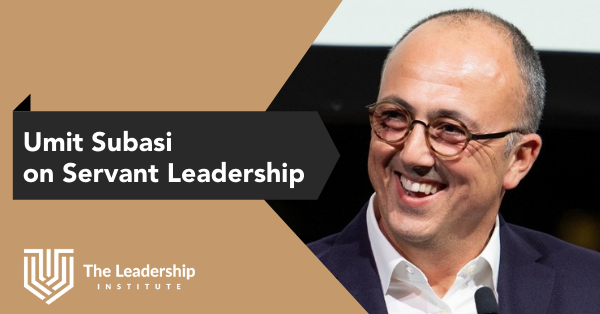The global executive talks about the traps to avoid and the skills to obtain in order to achieve greater success with servant leadership.
Umit Subaşı joined Campbell’s as the President of Asia Pacific in November 2013 and was appointed President of Campbell International in April 2018, overseeing all of Campbell’s International operations outside the Americas together with Global Brands. At the same time, he led the flagship business in ANZ as the CEO of Campbell Arnott’s over the last 6 years.
As the head of an iconic company, Umit knows the importance of staying true to your values and understanding the needs of your people and your organization, while being adaptable to the contemporary business climate.
In his keynote at the Authentic Leadership Summit 2020, Umit will provide his personal reflections on the concepts of authenticity and servant leadership while pushing our comfort zones for continued growth and development.
Umit shared some of the principles that drive his own brand of leadership in an interview ahead of his session at the Authentic Leadership Summit in March.
On the traps that inauthentic leaders make
Sometimes, when leaders experience a great deal of success, they tend to be over-confident. Umit warns us of the 3 egoist traps or mistakes that get in the way of effective leadership.
Trap #1 – Excessive confidence and pride
“When these behaviors are displayed, there are lots of valuable angles that leaders can miss which could be critical in terms of their roles. Whether it’s an organisation, or life in general, staying humble and grounded all the time is really the first thing that I can think of. Success is a very lousy teacher, as we know.”
Trap #2 – Not listening
“Organisations are evolving, everything around us is changing, and the presence of, and the sheer volume of intellect around us is not to be underestimated. And people in leading roles, they don’t know everything. I think they have to stay with an open eye, and more importantly with open ears to what’s going on around them, what’s going on in the organizations.”
Trap #3 – Forgoing self-progress and learning
“I think the more we progress in life, in organisations, in our leadership roles, the experience comes in. It doesn’t mean that we know it all. There are always things leaders can learn in terms of adding to their asset base – self-development, self-progress and learning. There’s never an end to it.”
On the most important leadership skills
Umit likens leaders to architects in the sense that great leaders build strong organisations by design. He adds, “almost like architects, leaders monitor the strategy, and build the structure and the culture. Being a builder comes into play”. Here are the important “builder” skills that are essential to great leadership according to Umit –
Skill # 1 Connecting the dots
“There’s just so many things that happen across the radar screen and that visibility spectrum for the leaders. I think the ability to see those things and then connecting them with the goals that need to be achieved is an important skill set.”
Skill #2 Facilitating collaboration
“Leveraging certain skills or facilitating collaboration in a certain space or bringing two things together or two people together. I think that is an important skill for leaders to display.”
Skill #3 Managing conflict
“Constructive conflict is really the basis of collaboration, I think. Conflict is almost something that people and organizations fear, because it’s always easier to stay in safer places as opposed to generating productive mechanisms where different viewpoints come into place.
Skill #4 Creating a culture of trust
“When people start trusting each other the rest really follows, because based on trust we can have constructive conflict, and if we have constructive conflict, we can drive collaboration. But certainly, within the authentic style that is enabling people to raise that opinion, and having that diversity of thought, and that leads to better decisions overall.”
Finally, Umit flips the script on leadership
For Umit, leadership is essentially about achieving the greater good by being of service to others.
“I have a very highly altruistic personality. I like to make a positive impact in other people’s life around me, generally speaking. Because leadership is not about position, it’s really service from my standpoint. And taking our egos, our personality out of the equation and doing what’s best for the business, best for the teams.”
Our key speakers have achieved new levels of success by being their true selves at work and having a shared purpose with their organisation and its people.
Sign up for The Authentic Leadership Summit and learn how you too can support, engage and empower your teams to succeed.



